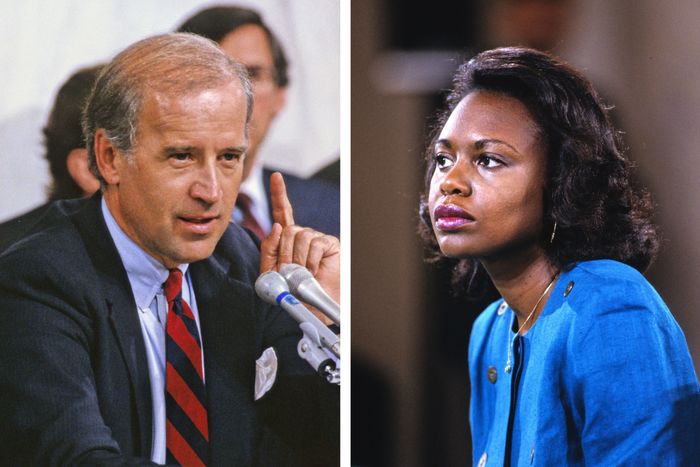
So a funny thing happened to Joe Biden’s presidential campaign on its first official day, as it was busily portraying itself as a party- and nation-unifying steamroller led by a confident politician who has learned all the right lessons from earlier mistakes in his long career.
Specifically, this happened, smack in the middle of a day when Team Biden needed to play error-free ball:
As the entire political world wondered exactly what it meant that his campaign was bringing up one of the more damaging episodes of Biden’s long Senate career, the other shoe dropped, in the New York Times:
Former Vice President Joseph R. Biden Jr. called Anita Hill earlier this month to express his regret over “what she endured” testifying against Justice Clarence Thomas at the 1991 Supreme Court hearings that put a spotlight on sexual harassment of women, according to a spokeswoman for Mr. Biden.
But Ms. Hill, in an interview Wednesday, said she left the conversation feeling deeply unsatisfied and declined to characterize his words to her as an apology. She said she is not convinced that Mr. Biden truly accepts the harm he caused her and other women who suffered sexual harassment and gender violence.
“I cannot be satisfied by simply saying I’m sorry for what happened to you. I will be satisfied when I know there is real change and real accountability and real purpose,” she said.
Hill went on to demand “an apology to the other women and to the American public because we know now how deeply disappointed Americans around the country were about what they saw. And not just women. There are women and men now who have just really lost confidence in our government to respond to the problem of gender violence,” after alluding to allegations that Biden has improperly touched women.
In case there was any doubt left, Hill made it clear that Biden wasn’t her candidate for president.
There may be some backstory that will come out later, but what it looks like now is that Biden decided to try to make peace with Hill before running for president, and failed, and then his campaign had to scramble when Hill gave an interview exposing his rejected half-apology on the eve of his announcement.
How Biden handled this mess raises a number of questions. There are ways to send back-channel feelers in this sort of situation that will give an indication whether engagement of the principals is a good idea. Instead, it sounds like Biden more or less cold-called Hill. Beyond that, given the “sorry for what you endured” thrust of the “apology,” Biden and his staff should have realized in advance that the odds were low that Hill would respond in a gratifying way. Indeed, the possibility that she would angrily reject the communication and redouble her criticism of Biden should have been carefully game-planned. And above all, why didn’t Biden either take care of this chore months ago, or wait until his long-planned launch was consummated? Why run the risk of exactly what happened?
It’s quite possible that this latest revival of one of Biden’s least-successful moments in politics won’t resonate much right away with regular voters; after all, all sorts of recent reminders of Biden’s “baggage” haven’t budged his levels of support in the polls. But it was important for Biden, the putative front-runner, to convey to the chattering classes of politics a sense, on this of all days, that his “baggage” had been left behind, and that the candidate’s past habit of committing gaffes had been left behind as well. Earlier today I wrote an analysis with with this headline: “Biden’s Strategy for Winning the 2020 Nomination: No Early Stumbles.” Little did I know we’d see one before the sun went down.






























